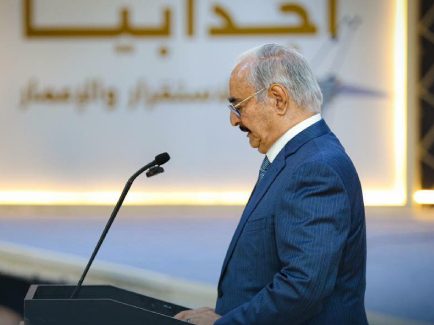Field Marshal Khalifa Haftar, Commander-in-Chief of the Armed Forces, in the presence of Prime Minister Osama Hammad and a number of senior officials, inaugurated a package of vital projects in the city of Ajdabiya. The projects were implemented by the Libya Development and Reconstruction Fund as part of the state’s plans to enhance infrastructure and develop basic services.
The projects included the opening of the city center bridge, considered a main artery connecting the east and west of the country, which will help alleviate congestion and facilitate traffic movement within the city. Additionally, the Ajdabiya–Tobruk road bridge was opened, connecting the southeastern and eastern coastal areas, thereby improving traffic flow on one of Libya’s most important strategic axes.
These projects are part of an integrated plan by the Development and Reconstruction Fund targeting major cities and strategic areas, especially since Ajdabiya is a meeting point for the east, west, and south, and a major hub for trade and transport towards the oil ports in the Oil Crescent.
In his speech during the inauguration, Hammad affirmed that these achievements would not have been possible without the state of security and stability the country enjoys, thanks to the military institution. He noted that what is being implemented today in Ajdabiya is part of the Commander-in-Chief’s vision for reconstruction and achieving balanced development in various cities.
Hammad also praised the pivotal role of the Development and Reconstruction Fund, which has proven its presence on the ground, both in the reconstruction of the city of Derna and the cities affected by Hurricane Daniel, and through the implementation of major infrastructure projects in various regions of Libya.
The projects witnessed in Ajdabiya today are an important step towards improving services and facilitating the movement of citizens, in addition to supporting economic and commercial activity. This is especially true as the city forms a strategic link between different regions of Libya, giving it a pivotal role in future development.
